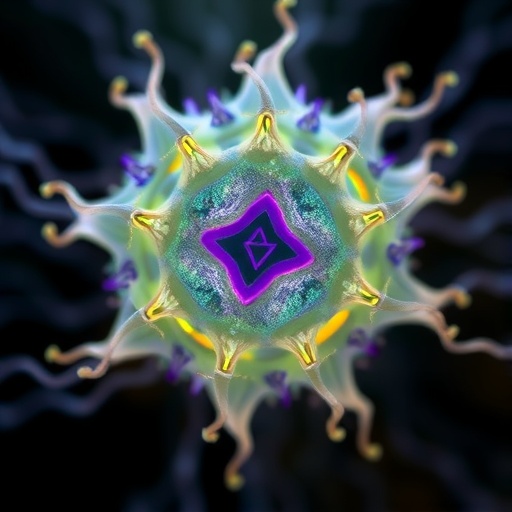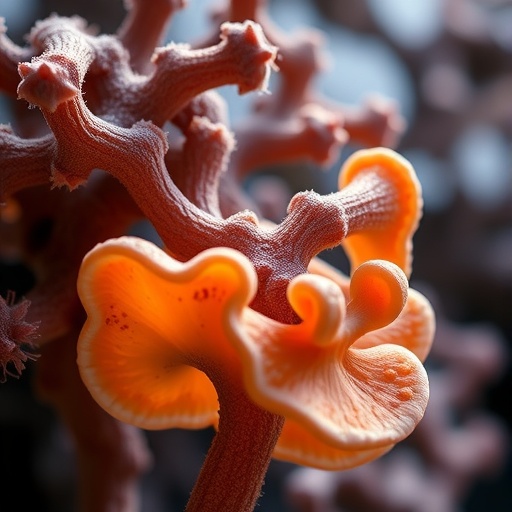
In the relentless battle against agricultural pests threatening global food security, researchers have unveiled a promising breakthrough for tomato cultivation under heat stress conditions. Root-knot nematodes (RKNs), notorious soil-borne obligate endoparasites, infest a broad range of crops by penetrating their root systems, causing devastating yield reductions worldwide. Until now, the primary defense embedded in commercially available tomato cultivars against these parasitic nematodes has relied predominantly on the Mi-1.2 gene. However, the efficacy of Mi-1.2 is profoundly compromised when soil temperatures surpass 28 degrees Celsius, a threshold frequently exceeded in both greenhouse and field tomato production, particularly accentuated by escalating global temperatures.
Recognizing the urgent need for heat-resilient genetic resistance, a group of Chinese scientists, led by Professor Cao Xu at the Chinese Academy of Sciences, have isolated and cloned a novel heat-stable RKN resistance gene, Mi-9, from the wild tomato species Solanum arcunum accession LA2157. This advancement not only addresses a fundamental limitation in existing RKN resistance but also pioneers a methodological framework encouraging the rapid characterization and deployment of genetic defenses in crops facing climatic adversities.
The researchers embarked on their investigation by assembling a high-quality de novo reference genome for the LA2157 accession using PacBio Sequel II long-read sequencing technology. The utilization of this cutting-edge sequencing platform facilitated an accurate resolution of complex genomic regions, particularly gene clusters characteristic of nucleotide-binding site and leucine-rich repeat (NBS-LRR) resistance genes. These gene clusters often harbor tightly linked paralogs evolved through duplication, inversion, and recombination events that modulate plant immunity.
Comparative genomic analyses conducted across 13 representative Solanaceae species revealed dynamic structural rearrangements within a 330-kilobase R gene cluster encompassing seven NBS-LRR type resistance genes. Notably, two inversion events within this locus appear to have shaped the presence or absence of heat-stable RKN resistance traits among the species examined, illuminating an evolutionary basis for variability in nematode defense mechanistics within the Solanaceae family.
To pinpoint the gene primarily conferring resistance, the team employed CRISPR/Cas9 genome editing to systematically generate and evaluate individual and combinatorial knockouts of five candidate NBS-LRR genes within the cluster. Functional analyses of these edited genotypes under RKN challenge demonstrated that only one candidate, designated Mi-9 Candidate 4 (MiC-4), singularly suffices to confer stable resistance across a range of soil temperatures exceeding 28℃. This finding represents a critical leap in understanding the genetic control of immunity in tomatoes and underscores the precision of genome editing tools for functional genomics.
Intriguingly, the physiological responses of MiC-4-expressing roots to nematode infection were characterized by rapid necrosis localized at the invasion sites, suggestive of a hypersensitive response activated at the earliest infection stages. Such robust localized cell death prevents nematode establishment and propagation, indicating a highly effective defense mechanism. Importantly, this defense remained resilient under heat stress conditions, marking MiC-4 as a promising candidate for breeding nematode-resistant tomato cultivars suited for warmer climates.
One of the pivotal outstanding questions involves elucidating the molecular signaling pathways connected to reactive oxygen species (ROS) regulation orchestrated by Mi-9/MiC-4 during nematode infection. The researchers posit that dissecting how ROS-mediated immune signaling is modulated could reveal novel insights into the complex crosstalk between plant defense systems and nematode pathogenicity. Such fundamental knowledge might open new avenues to enhance or mimic this defense in other susceptible crops.
In broader terms, the study also highlights the power of integrating comparative genomics with state-of-the-art genome editing to accelerate the discovery and functional validation of agronomically significant resistance genes. This integrative strategy not only mitigates the historical challenges posed by low recombination rates within tightly linked gene clusters but also demonstrates a replicable model for rapid gene isolation from wild germplasm resources. Leveraging wild relatives’ genetic diversity thus emerges as a pragmatic approach to address biotic stresses exacerbated by climate change.
With global food supply chains increasingly vulnerable to the dual threats of escalating temperature extremes and expanding pest ranges, the elucidation of heat-stable RKN resistance mechanisms holds considerable translational potential. Deploying Mi-9 through marker-assisted selection or precision genome editing in elite tomato cultivars could substantially improve yield stability, reduce reliance on chemical nematicides, and foster sustainable agricultural practices. Further, this research may inspire similar endeavors across other crop species challenged by heat-stress-sensitive pathogens.
The authors’ approach and discoveries exemplify how fundamental plant genetics research directly informs applied breeding programs, aligned with global climate resilience goals. Their findings, recently published in the Journal of Integrative Agriculture, lay a solid foundation for integrating molecular biology, genomics, and functional assays to combat plant parasitic nematodes more effectively in a warming world.
Interested parties and fellow researchers seeking to explore or build upon this work may contact Professor Cao Xu via email at [email protected]. This landmark study was supported by funding from the National Key Research and Development Program of China and the Strategic Priority Research Program of the Chinese Academy of Sciences, underscoring the critical investment in agricultural biotechnology for future food security.
As climate change continues to redefine agronomic paradigms, the identification and characterization of genetic elements like Mi-9 provide a beacon of hope. This research not only shifts the paradigm in tomato nematode resistance breeding but also advocates for the broader application of integrated genomic and biotechnological techniques to meet the formidable challenges ahead in global agriculture.
Subject of Research: Not applicable
Article Title: A tomato NBS-LRR gene Mi-9 confers heat-stable resistance to root-knot nematodes.
Web References: http://dx.doi.org/10.1016/j.jia.2024.07.017
References: Chen S D, et al., Journal of Integrative Agriculture, 2024.
Image Credits: Chen S D, et al.
Keywords: Life sciences, Plant sciences, Cell biology, Genetics, Microbiology
Tags: agricultural pest managementclimate change impact on agriculturegenetic resistance in cropsglobal food security solutionsheat-resilient genehigh-quality genome sequencingMi-9 generoot-knot nematodes resistancesoil-borne nematode infestationsSolanum arcunum speciessustainable agriculture practicesTomato cultivation




